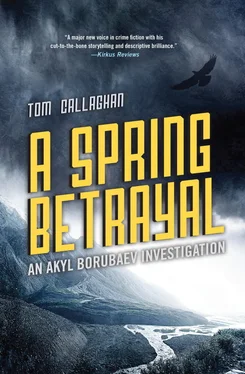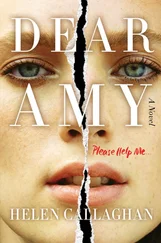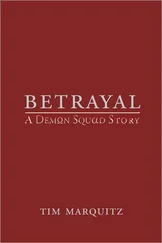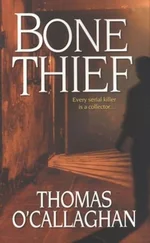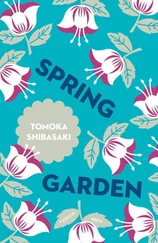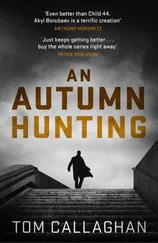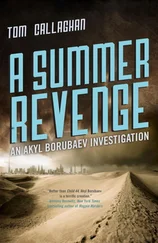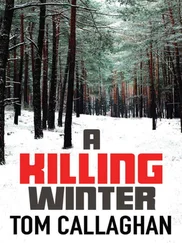I turned away from Saltanat, looked down at my hands. They didn’t shake or tremble; a bit late in the game, perhaps I was getting used to killing.
“Who do you think that guy was?” Saltanat asked. Her hands were as rock-steady as mine.
“Two thoughts,” I said. “Either just some gopnik layabout in a tracksuit getting rid of the day’s pivo when we walked in. Or…”
“Or?” she prompted.
“You were set up by Kamchybek’s call. You were meant to go there, and get hit. But they didn’t expect I’d be with you. Or that Lubashov would try to avenge his brother. That made it all turn to shit.”
“Which do you think it was?”
“I look like I believe in coincidence?”
“Who would set it up?” she asked.
I shook my head; better to assume everyone was against us.
“And the iPhone? Why bother if they were going to put me down?”
“A good way to find out just how much you knew, how much you might have reported back, before putting one in your ear.”
I didn’t want to tell her I thought she wouldn’t have been killed, not just then. She would have been dragged somewhere quiet, where the occasional scream goes unnoticed and people pretend a gunshot is a car backfire. The same sort of place where Saltanat had been raped, probably the same kind of people.
I put my hand on hers, just for a moment, then uncapped a bottle of Sibirskaya Korona, pushed it toward her. She hesitated, then drank.
“It helps me relax,” she said. “You should try it.”
“You think I can’t relax unless I’m halfway down the hundred grams?”
“You used to drink.”
“And now I don’t.”
“Forever?”
I shrugged, pretended nonchalance I didn’t feel.
“For today will do, for now.”
Saltanat considered this for a moment, smiled, nodded. Once upon a time, in my drinking days, before Chinara, this would have been when I kissed the evening’s girl, smelled lemon shampoo in her hair, felt the heat of her skin, the softness of her lips.
But those days are dead and buried deep. And I don’t think they’ll be coming back, at least, not for Mrs. Borubaeva’s boy. It’s the death all around that’s corroded me, not the drink.
Saltanat leaned back, finished her beer, said, “Time to eat.”
I thought, Time to kill.
Saltanat and I sat under the shelter of the sloping bar roof, the rain cascading down around us. We’d eaten the vegetable pelmeni and bowls of lagman Rustam had brought out to us, wondered if the storm would ever end. Up in the mountains behind us, occasional rolling peals of distant thunder punctuated our conversation as we planned what to do next.
I thought I knew the streets and alleys of Bishkek better than most tacsi drivers, but I’d never heard of the Umai Hotel. And judging by the apparent absence of any guests, neither had anyone else.
“How do you know about this place?”
Saltanat lit a cigarette and sucked down the first smoke, then let it merge with the fine gray mist of the rain.
“I was at school with Rustam’s daughter. Anastasia. We knew each other, not well, enough to say hello. When she was at college in Tashkent, she was attacked by three men.”
She paused, stared at me.
“I helped catch the men who did it. One of them was killed trying to escape. By me.”
Her look challenged me to disagree with her. I simply raised an eyebrow.
“I’d do it again. Rustam knows that too. So I stay here at his insistence, every time I’m in Bishkek. I can’t pay for anything. Embarrassing, really.”
After a final draw on her cigarette, she threw the still-lit stub out onto the grass, listened to its half-hearted hiss before dying.
“I don’t think your people—your ex-people—know I use this place, but we’d better keep on the move, just in case.”
I followed her to the car. From the hotel porch, Rustam raised his arm in farewell, jacket collar turned up against the rain. As the Lexus started to move toward the gates, Saltanat turned to me, her face impassive, betraying nothing. Her voice was calm.
“Eighteen months later, Anastasia killed herself.”
And then we were through the gates, tires sending up a black spray against walls on both sides.
Chinara always said I felt too deeply for the victims in the cases I handled, that my emotional involvement would lead me to make mistakes, to follow one line of investigation excluding all others. At the same time, she knew it was the only way I could operate. My unconditional need for her and my need for justice for the dead were what made me the man I was. But things change, and so did I.
“Love weathers all storms”? Perhaps. But I’ve learned that without love, nothing shores our lives up except rage, darkness, death. The story Saltanat had shared gave me one insight; we both endured the same sense of loss on behalf of the dead. Chinara had been my soul mate; Saltanat was my mirror image.
“Our plan?” I asked.
“We go somewhere no one will look for you. You can’t hide in Bishkek; too many people know you. And my contact down in Jalalabad can deprogram that phone’s security features.”
“It’s the only lead we’ve got,” I agreed. “But wouldn’t it be better if we split up? Why should you get involved with this?”
“Because I want whoever killed Gurminj,” she said.
“And those children.”
“Yes. And those children.”
Which meant heading southwest toward Jalalabad, snowcapped mountains rising up on either side of us, soon to be stained with the setting sun’s blood.
We have a legend in Kyrgyzstan that at the world’s beginning, God handed out countries to all the different races. However, the Kyrgyz man was asleep, probably after a long night on the vodka, and when he woke up, all the earth had been given away. “But where am I going to live?” he asked, I expect in a whining, rather resentful voice. God considered the matter for a moment, said, “There’s one country I’ve been saving for myself. So beautiful, with flowing rivers and lofty mountains, clear air, rich grass, splendid trees. I suppose you’d better have that.” And that’s how we Kyrgyz ended up in Kyrgyzstan.
I couldn’t help remembering the story as we negotiated the hairpin bends that wind up into the Tien Shan mountains on their way to the south of Kyrgyzstan, toward our second-biggest city, Osh. The narrow road climbs to three thousand meters above sea level with terrifying drops down into the valleys below. The air is crisp, cold, so your chest aches and your head feels giddy. Splashes of snow still lined the roadside, and every few miles Saltanat would have to steer past debris left from the winter’s rockfalls. But I felt alive, in a way I hadn’t felt for a long time. Most people think life is about seeking joy, or making and spending money, or fucking and drinking yourself into oblivion. But for me, it’s about justice, providing endings. And when I’m at my least cynical, it’s about love.
The road is a hard drive, even in the summer months, let alone in spring. But I wouldn’t risk a commercial flight to Osh, and no way was I going back to Karakol. Halfway between Bishkek and Osh, Jalalabad was near enough to the Uzbekistan border to make an illegal crossing possible, if I needed to. But first I had some deaths to avenge.
“You were in an orphanage as a child, weren’t you?”
It wasn’t something I shared with most people, but I shouldn’t have been surprised that she knew.
“Uzbek security work overtime on my files?” I asked.
Saltanat laughed.
“I think you exaggerate our skills,” she said. “No, Gurminj told me, said you were there while your mother was working in Siberia.”
Читать дальше
